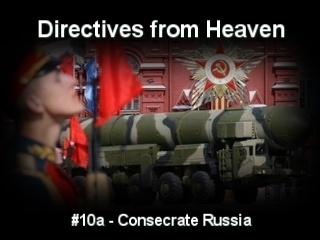What
conscience is
According to My Catholic Faith catechism,
“Conscience is the manifestation of God’s will that is made to men by the voice
of reason, by the dictates of their intellect.”[1]
The Catechism of the Catholic Church states, “Moral conscience, present
at the heart of the person, enjoins him at the appropriate moment to do good and
to avoid evil. It also judges particular choices, approving those that are good
and denouncing those that are evil.”[2]
Conscience is the judgment or dictate of the intellect deciding from general
principles the goodness or badness of some act which is to be done here and now,
or has been done in the past. A true conscience indicates correctly the
goodness or evil of moral conduct. An erroneous conscience (sometimes called a
false conscience) incorrectly indicates that a good action is evil or an evil
action is good.
As the body has nerves to alert us to damage done to the body, so too the guilt
of conscience alerts us to damage done to the soul. Guilt of conscience can be
likened to an internal security system for the soul. Cardinal Ratzinger
tells us, “This feeling of guilt disturbs the false calm of conscience and could
be called conscience’s complaint against my self-satisfied existence. It is as
necessary for man as the physical pain which signifies disturbance of normal
bodily functioning.”[3]
St. Paul tells us that the pagans, even without the law, knew what God expected
of them (Romans 2:1-16). All people have a conscience, pagans and Christians
alike. As Bishop John Keating explains,
“You
don't have to be a person of faith or religious background to be able to tell
the difference between good and evil, between right and wrong. Even in countries
that are officially atheistic, their laws will reflect norms of fundamental
ethics, for example, that murder, rape, and larceny are wrong, that patriotism,
honesty under oath, and philanthropy are good.”[4]
The light of conscience
shines in the heart of every man:
“As for
conscience, which receives from God ‘that primordial insight about good and
evil,’ it is like an indestructible spiritual spark (scintilla animae) which
shines in the heart of every man. The Scholastics called it synderesis. It is
also said to be the voice of God. Thanks to this higher light, conscience
becomes for man an inner imperative and a call to do what is good in concrete
situations. This is the origin of moral obligation, also called the obligation
of conscience.”[5]
Conscience
must be obeyed
St. Paul consistently shows conscience to be a “witness” to a truth that man has
not made and that he cannot alter, but must submit to (Romans 2:15; 9:1; 2 Cor.
1:12; 4:2; 5:11). According to St. Bonaventure, "conscience is like God's
herald and messenger; it does not command things on its own authority, but
commands them as coming from God's authority, like a herald when he proclaims
the edict of the king. This is why conscience has binding force."[6]
In his Grammar of Assent Cardinal Newman speaks of conscience as “our
great internal teacher of religion."
The voice of conscience must be obeyed, because it represents the voice of
truth, as we know it. To deliberately reject the voice of conscience is to
deliberately reject what we believe (correctly or erroneously) to be the truth.
The Catechism states:
“A human
being must always obey the certain judgment of his conscience. If he were
deliberately to act against it, he would condemn himself. Yet it can happen that
moral conscience remains in ignorance and makes erroneous judgments about acts
to be performed or already committed. This ignorance can often be imputed to
personal responsibility. This is the case when a man ‘takes little trouble to
find out what is true and good, or when conscience is by degrees almost blinded
through the habit of committing sin.’”[7]
Cardinal Ratzinger says, "A man of conscience is one who never acquires
tolerance, well-being, success, public standing, and approval on the part of
prevailing opinion, at the expense of truth."[8]
Pope John Paul II in 1995 gave a talk in Poland, explaining what it means to be
a person of conscience:
“To be
a person of conscience means first of all, obeying one's own conscience in
every situation and not silencing its inner voice, even if it is sometimes
severe and demanding. It means working for what is good and increasing it within
and around oneself, and never giving in to evil, in the spirit of St. Paul's
words: ‘Do not be overcome by evil, but overcome evil with good’ (Romans 12:21).
To be a person of conscience means being demanding with oneself, getting
up again after falling, being ever converted anew. To be a person of
conscience means working to build up the kingdom of God—the kingdom of truth
and life, of justice, love and peace—in our families, in the communities in
which we live and throughout our homeland. It also means courageously assuming
responsibility for public affairs; it means being concerned for the common good
and not closing our eyes to the misery and needs of our neighbor, in a spirit of
Gospel solidarity: ‘Bear one another's burdens’ (Gal 6:2).”[9]
Conscience
must be informed
Regarding conscience, there is a two-fold aspect in the Catholic moral
tradition. First, that conscience speaks with the voice of the eternal and
natural law. Second, that it can be mistaken or erroneous and even sinfully so,
either on the part of a sin of omission in the intellect (someone who neglects
to find out the truth) or the sin of omission in the will (someone who chooses
not to act according to the truth, and they know that that’s what they should
do). The Catechism tells us, “Conscience must be informed and moral
judgment enlightened.”[10]
Our conscience must be nourished with truth that we may have an informed
conscience, a conscience that more and more conforms to God’s perfect law. “A
conscience that is not ‘fed’ by moral commandments and by grasping morally
relevant and moral values,” writes Dietrich von Hildebrand, “is a blind
conscience.”[11]
Dr. Donald DeMarco emphasizes that conscience is weakened when it is separated
from truth:
“Conscience, truth, and freedom all thrive, so to speak, in each other’s
presence…. Truth, freedom, and conscience are mutual allies. To isolate
conscience from this triad of life, is to contradict its essential operation.”[12]
Pope John Paul II teaches us that unless we are seeking to make our conscience
conform to the truth, we are only imposing our personal opinion:
"To claim
that one has a right to act according to conscience, but without at the same
time acknowledging the duty to conform one's conscience to the truth and to the
law which God himself has written on our hearts, in the end, means nothing more
than imposing one's limited personal opinion."[13]
A
difficult, but necessary task
General Omar Bradley once said, “The world has achieved brilliance without
conscience. Ours is a world of nuclear giants and ethical infants.”[14]
Many have great worldly knowledge but are remiss in the duties to listen to, and
properly inform, their conscience. The Catechism teaches, “The education of
conscience is a lifelong task.”[15]
Bishop Egan acknowledges that the task of informing our conscience is not always
an easy one:
"Oh yes,
I concede that the enterprise can at times be difficult, faltering, or even
touched with error. All the same, I insist with Aristotle and Aquinas, not to
mention the author of the Book of Wisdom and Paul of Tarsus, that the Divinity
has carved into our hearts the essentials of His will for us and that we cannot
long be ignorant of them unless we choose to be."[16]
Pope John Paul II tells us that Christians have a great help for the formation
of conscience in the Church and her Magisterium. He emphasizes that “the Church
puts herself always and only at the service of conscience, helping it to
avoid being tossed to and fro by every wind of doctrine proposed by human deceit
(cf. Eph. 4:14)…”[17]
Cardinal Newman, speaking of conscience, tells us: "Left to itself, though it
tells truly at first, it soon becomes wavering, ambiguous, and false; it needs
good teachers and good examples to keep it up to the mark and the line of duty;
and the misery is that these external helps, teachers, and examples are in many
instances wanting."[18]
And of course it is due to the effects of original sin, as well as our own
personal sins, that accounts for the weakness and the wavering of conscience:
“… one of the effects of original sin, if not counteracted by the proper
spiritual measures,” Fr. Miller writes, “is ‘a weakening of the intellect,’ that
is, a tendency of the human mind to deny the most elementary truths out of
pride, or passion or self-will.”[19]
Coming to grips with the truth carries with it the responsibility of adjusting
our behavior and beliefs to accord with the truth. We are called upon daily to
convert ourselves away from our sinful self, and conform to the image of
Christ:
“… one
must take oneself seriously, coming to grips with the evil in oneself which is
ever seeking to lead one from the true meaning of life. This force must be
recognized and encountered. In other words one must take one’s conscience
seriously. It must be admitted that there is a general tendency not to face
these things. They are uncomfortable and we tend to feel we would rather know
nothing about them.”[20]
The
counterfeit conscience: what conscience is not
Bishop
Fulton Sheen explains that conscience is very much like a compass: “If a
magnetic needle were endowed with feeling and it pointed south instead of north,
it would be in ‘pain’ because not pointing in the direction of its true nature.
If a bone becomes dislocated the whole body suffers, because the bone is not
where it ought to be. In like manner, if the heart and mind and soul of man, by
a free act of choice, turn not to the God of Love and Mercy, but away from Him
to the things of self, he too suffers pain and remorse because he is not where
he ought to be—in the arms of God.”[21]
What would you think of a person who had a broken compass, a compass that did
not point to magnetic north, who insisted that his compass never failed him
because it was his compass? Would you think such a person the
greatest fool there ever was? Crazy or demented? Perhaps, because his thinking
and behavior is so ridiculously outside of reality. But many people insist
on following a broken compass of their own making, their own opinion, and insist
that this broken compass (their erroneous or seared conscience), points north
(towards truth) merely because they say it does. Here are a few examples of what
conscience is not:
· Conscience
is not personal opinion:
As Cardinal Newman stated: "Conscience is not a long-sighted selfishness, nor a
desire to be consistent with oneself; but it is a messenger from Him, who, both
in nature and in grace, speaks to us behind a veil, and teaches and rules us by
His representatives." According to Fr. Servais Pinckaers, O.P., “A conscience
formed by opinion is pure illusion. It is a conscience fallen captive to our
opinion and to our determination to defend and justify our own feelings and
their worth. It refuses to submit to the judgment of another or the command of
any authority whatsoever. This so-called conscience attempts to set itself up as
the judge of good and evil and to shape law, the moral world, religion, and even
God himself, according to its whim.”[22]
· Conscience
is not what is socially acceptable:
Pope John Paul II, addressing the world’s Catholic priests on Holy Thursday 2001
stated, “Then
there is also the fundamental problem of catechetical teaching about the
moral conscience and about sin, so that people can have a clearer idea of
the radical demands of the Gospel. Unfortunately, there exists a minimalist
tendency which prevents the Sacrament from producing all the benefits that we
might hope for. Many of the faithful have an idea of sin that is not based on
the Gospel but on common convention, on what is socially ‘acceptable’. This
makes them feel not particularly responsible for things that ‘everybody does’,
and all the more so if these things are permitted by civil law.”[23]
· Conscience
is not the right to do as you please:
Fr. Servais
Pinckaers, O.P. writes, “If conscience has its rights, it is because duties are
implied. But in our day, in the minds of a great number of people, the rights
and freedom of conscience serve only to dispense conscience. They would like to
ignore the Lawgiver and Judge, and be free of all interior obligation…. In
former times, conscience was a strict counselor. Nowadays it has yielded its
place to a sham unheard of in eighteen centuries, which would never have taken
people in if they had know of it: the right to do as you please.”[24]
· Conscience
is not freedom from the teachings of the Catholic Church:
Pope
John Paul II writes, “In forming their conscience the Christian faithful must
give careful attention to the sacred and certain teaching of the Church. For the
Catholic Church is by the will of Christ the teacher of truth.”[25]
· Conscience
is not independently determining what is good and evil:
Pope John Paul II tells us, "But in this way the inescapable claims of truth
disappear, yielding their place to a criterion of sincerity, authenticity and
'being at peace with oneself', so much so that some have come to adopt a
radically subjectivistic conception of moral judgment ... there is a tendency to
grant to the individual conscience the prerogative of independently determining
the criteria of good and evil and then acting accordingly. Such an outlook is
quite congenial to an individualist ethic, wherein each individual is faced with
his own truth, different from the truth of others."[26]
· Conscience
is not freedom of opinion:
Pope Gregory XVI wrote, “This shameful font of indifferentism gives rise to that
absurd and erroneous proposition which claims that liberty of conscience must be
maintained for everyone. It spreads ruin in sacred and civil affairs, though
some repeat over and over again with the greatest impudence that some advantage
accrues to religion from it. ‘But the death of the soul is worse than freedom of
error,’ as Augustine was wont to say. [St. Augustine, epistle 166.] When
all restraints are removed by which men are kept on the narrow path of truth,
their nature, which is already inclined to evil, propels them to ruin. Then
truly ‘the bottomless pit’[Apoc. 9:3] is open from which John saw smoke
ascending which obscured the sun, and out of which locusts flew forth to
devastate the earth. Thence comes transformation of minds, corruption of youths,
contempt of sacred things and holy laws--in other words, a pestilence more
deadly to the state than any other. Experience shows, even from earliest times,
that cities renowned for wealth, dominion, and glory perished as a result of
this single evil, namely immoderate freedom of opinion, license of free speech,
and desire for novelty.”[27]
· Conscience
is not “being at peace with oneself”:
Cardinal Ratzinger
stated, "Whoever equates conscience with superficial conviction, identifies
conscience with a pseudo-rational certainty, a certainty which in fact has been
woven from self-righteousness, conformity and lethargy. Conscience is degraded
to a mechanism for rationalization while it should represent the transparency of
the subject for the divine and thus constitute the very dignity and greatness of
man."[28]
“You
will always remember, My child and My children, that when the struggle
to remain on the narrow path has 'taken all out of you,' as you say, you
must remember that eventually you will all be held accountable for your
soul. There is not one person who can follow you at the same time over
the veil and stand up for you when you are being judged. For every man,
woman, and child of conscionable age will be their own master towards
their soul. In other words, My children, you must have your God-given
conscience forward and placed before you always.” - Jesus, March
18, 1983
References:
[1]
Bishop Morrow, My Catholic Faith, p. 171.
[2] Catechism of the
Catholic Church, #1777.
[3] Cardinal Joseph
Ratzinger, “Conscience and Truth,” 1991.
[4]
Bishop John Keating, A
Pastoral Letter on Morality and Conscience, September 17, 1994.
[5] Servais Pinckaers, O.P.,
“An Encyclical for the Future: Veritatis splendor”.
[6] Quoted by the Holy
Father in Veritatis Splendor, n. 58.
[7] Catechism of the
Catholic Church, #1790-1791.
[8] Cardinal Joseph
Ratzinger, “Conscience and Truth,” 1991.
[9]
Pope John
Paul II, “Rights of consciences must be defended,” May 22, 1995.
[10] Catechism of the
Catholic Church, #1783.
[11] Dietrich von
Hildebrand, True Morality, 92.
[12] Donald DeMarco, New
Perspectives on Contraception, 76.
[13] John Paul II, “Respect
for Conscience: Foundation for Peace,” 1991 World Day of Peace
Message.
[14] Omar Nelson Bradley
(1893-1981) - Edythe Draper, Draper's Book of Quotations for the
Christian World, Entry 1705.
[15] Catechism of the
Catholic Church, #1784.
[16] Bishop Edward M. Egan,
homily at the Red Mass in St. Matthew's Cathedral, Washington, D.C.,
October 6, 1985.
[17] Pope John Paul II,
Veritatis Splendor, #64.
[18] Cardinal Henry Newman,
Discourses Addressed to Mixed
Congregations.
[19] Donald F. Miller,
C.SS.R, “What is the Natural Law?” p. 20.
[20] Frederick Von Gagern,
Mental and Spiritual Health, p. 21.
[21] Bishop Fulton Sheen,
The Moral Universe, pp. 110-111.
[22] Servais Pinckaers,
O.P., “An Encyclical for the Future: Veritatis splendor”.
[23] Pope John Paul II’s
2001 Holy Thursday address to priests,
http://www.ewtn.com/library/PAPALDOC/JP2HLYTH.HTM
[24] Servais Pinckaers,
O.P., “An Encyclical for the Future: Veritatis splendor”.
[25] Quoted in Veritatis
Splendor, #64.
[26] Pope John Paul II,
Veritatis Splendor, #32.
[27] Pope Gregory XVI, On
Liberalism and Religious Indifferentism, #14.
[28]
Cardinal Joseph Ratzinger, “Conscience and Truth,” 1991.
Our Lady of
the Roses Bayside messages:
These messages came from Jesus, Mary, and the saints to Veronica
Lueken at Bayside, NY, from 1968 to 1995.
NECESSARY TO
REPEAT?
“My child, is it necessary for Me to repeat My words? Have I
not reached the world with an essence of the truth? The truth lies in every
man's heart, for every man has been given an inbuilt conscience from the
Father. However, of your own will can you shut off your contact with your
Father, for you give yourself to the world.” - Our Lady, February 1, 1974
EMOTION
SUPERB
“My poor children, hopeless of heart, know now that the future
after the cleansing will be glorious, far more glorious than your human mind
could ever conceive. Beauty of beauties! Emotion superb! The fulfillment of
every desire that man could conceive on earth will be yours in the Kingdom.
Is this, My children, what you will discard for the few short earthly years
given to you, as you run about aimlessly seeking the pleasures of your world
and the riches, willing to close your hearts and your ears to the truth?
Many have chosen this path, for they find to shut out the truth will take
the conscience, God-given to them, away. How mistaken they are! They cannot
run from the Spirit.” - Our Lady, March 18, 1973
NOT ONE
PERSON
“You will always remember, My child and My children, that when
the struggle to remain on the narrow path has 'taken all out of you,' as you
say, you must remember that eventually you will all be held accountable for
your soul. There is not one person who can follow you at the same time over
the veil and stand up for you when you are being judged. For every man,
woman, and child of conscionable age will be their own master towards their
soul. In other words, My children, you must have your God-given conscience
forward and placed before you always.” - Jesus, March 18, 1983
TARNISHED
“You must realize, My children, that he who does not recognize My Son as
his Savior shall not be given the keys to the Kingdom. My Son has given you
all in the Father an inborn conscience and guide. You will not be misled by
satan or his agents or by his enticements if you do not throw away the
graces that have been given to you. Your souls will only become tarnished if
you fall from this grace or cast it willfully away. Then you will become
blind, My children. All of you can become blind where you will no longer
recognize truth.” - Our Lady, March 25, 1972
NO OTHER
RECOURSE
“There is no other recourse, My children. You have all been
given an inborn conscience. You must reject the plan of satan and not
succumb to his lures. The world about you has become the playground of satan
and his agents. Your world is in darkness; Our Church is in darkness. But We
still carry the light. And all who follow Me, My children, will be led out
of this darkness.” - Our Lady, April 1, 1972
SIN AGAINST
THE HOLY SPIRIT
“The greatest sin that man has on his weakening
conscience is a sin against the Holy Spirit. And this is being committed not
only in lay life but in the ranks of My clergy.” - Jesus, May 13, 1978
THE PLAN
“You cannot in your human nature understand the plan of your God, your
Creator, but you can with your inborn conscience know in your hearts that
you have misled, O bishops and cardinals, Our sheep! Turn back, I say unto
you, for you shall be punished.” - Jesus, May 20, 1978
NO EXCUSES
“Yes, your prayers and sacrifices are needed for those who do not have
the power of grace to help themselves. If you could see the vast numbers who
have already succumbed to the evil, you would spend all your time on your
knees. No excuses must be given in defense of worldly gain. No excuses will
be accepted if you did not care enough to save your brother. You will be
held accountable for all discard of duty, of inborn godly conscience.” -
Our Lady, May 30, 1971
A NEW CHURCH
“Yes, My child, as My Mother has told you in the past, man is
endeavoring to build a new church upon earth, a church of naturalism and of
free conscience, a church of satan.” - Jesus, November 20, 1978
HELL
“My children, if I could take you with Me and allow you to look into the
abyss, I assure you with--though I count three who come on the journey, two
could not withstand the terror and the fright; their hearts would surely
stop on viewing this scene in the abyss: torments and endless torture, both
of feeling conscience and body!” - Our Lady, May 27, 1978
INBORN
CONSCIENCE
“We gave you all an inborn conscience. These evils must be
stopped because of the children. The heavy load will be upon the parents.
They must keep the Faith in their hearts. Keep the Faith in the hearts of
those you love. It will not be easy. Your only refuge would be your home.
You will have to bar the doors against evil. Yes, you can be deluded and
misled when you do not see the evil about you. It could be, My child, like
mass hypnotism.” - Our Lady, June 17, 1971
RIGHT FROM
WRONG
“Every man, woman, and child of the age of reason knows right
from wrong, for he has been given an inborn conscience. At the moment of his
conception life is within the womb, and at the moment of conception a life
is forming, regardless of what the agents of hell now pollute the minds of
mankind with, creating murders of the young! I say unto you, life begins at
the moment of conception and all who extinguish this light are murderers,
and without repentance shall be condemned to hell!” - Jesus, June 18,
1977
Directives
D95
- Law
 PDF
PDF
D96 -
Conscience  PDF
PDF
D97 -
Soul, Part
1
 PDF
PDF
D98 -
Soul, Part
2
 PDF
PDF
D99 -
Salvation,
Part 1
 PDF
PDF
D100 -
Salvation, Part 2
 PDF
PDF
D123
-
Catholic Church, Part 1
 PDF
PDF
D124
-
Catholic Church, Part 2
 PDF
PDF
D125 -
Ecumenism
 PDF
PDF
D277 -
Fallen-away
Catholics
 PDF
PDF
Links:
A pastoral
letter on morality and conscience,
Bishop John Keating, September 17, 1994
http://www.ewtn.com/library/BISHOPS/PASTORAL.HTM
Conscience and Truth, Cardinal Joseph Ratzinger
http://www.cin.org/avatar/ratzcons.html
Videos online:
| Home |
Introduction |
Bayside Messages |
Directives from Heaven |
Miracles & Cures | Veronica Lueken |
Miraculous Photos |
Videos |
Revised:
April 11, 2018
The God-given gift of conscience
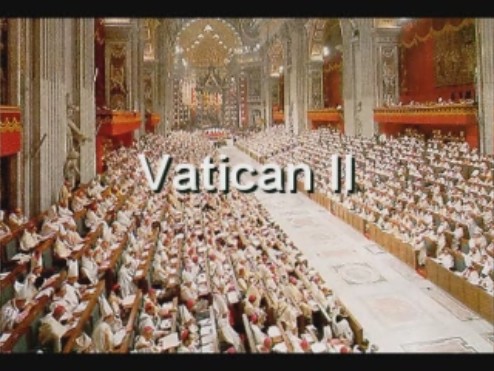 Vatican
II
Vatican
II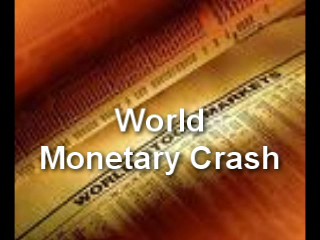 World
Monetary Crash
World
Monetary Crash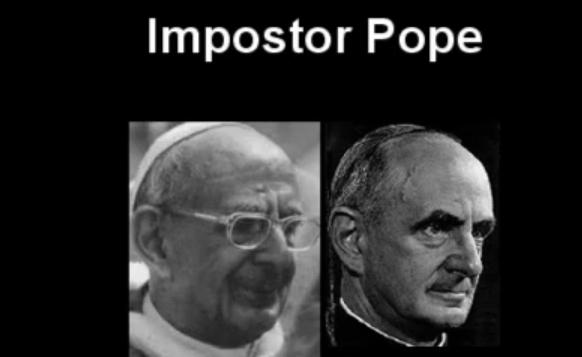 Deception
of the Century
Deception
of the Century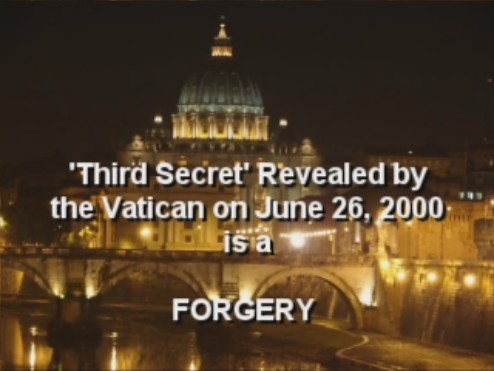 Third
Secret Fabrication
Third
Secret Fabrication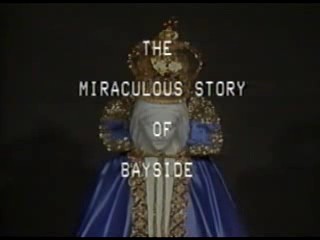 The
Miraculous Story of Bayside
The
Miraculous Story of Bayside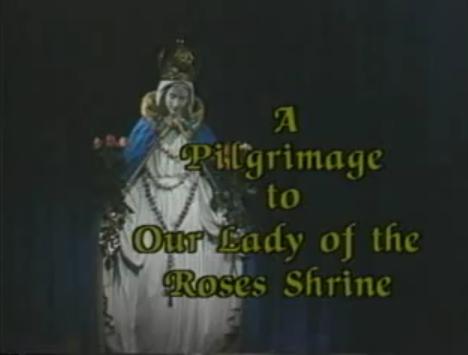 A
Pilgrimage to Our Lady of the Roses Shrine
A
Pilgrimage to Our Lady of the Roses Shrine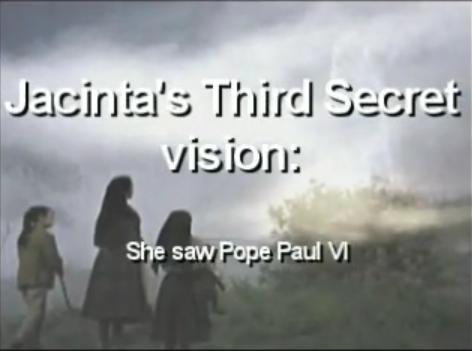 Jacinta's
Third Secret vision: She saw Pope Paul VI
Jacinta's
Third Secret vision: She saw Pope Paul VI